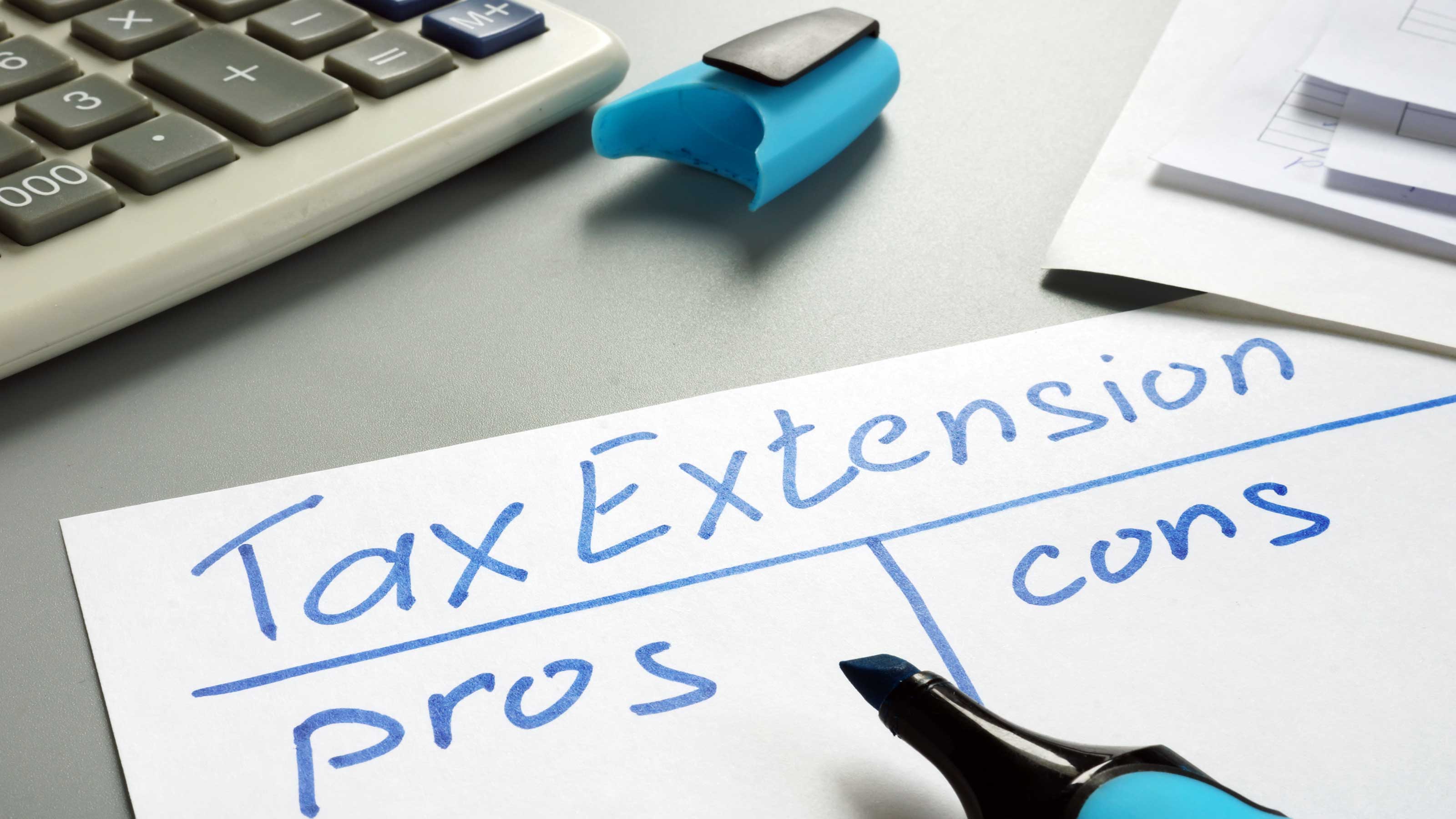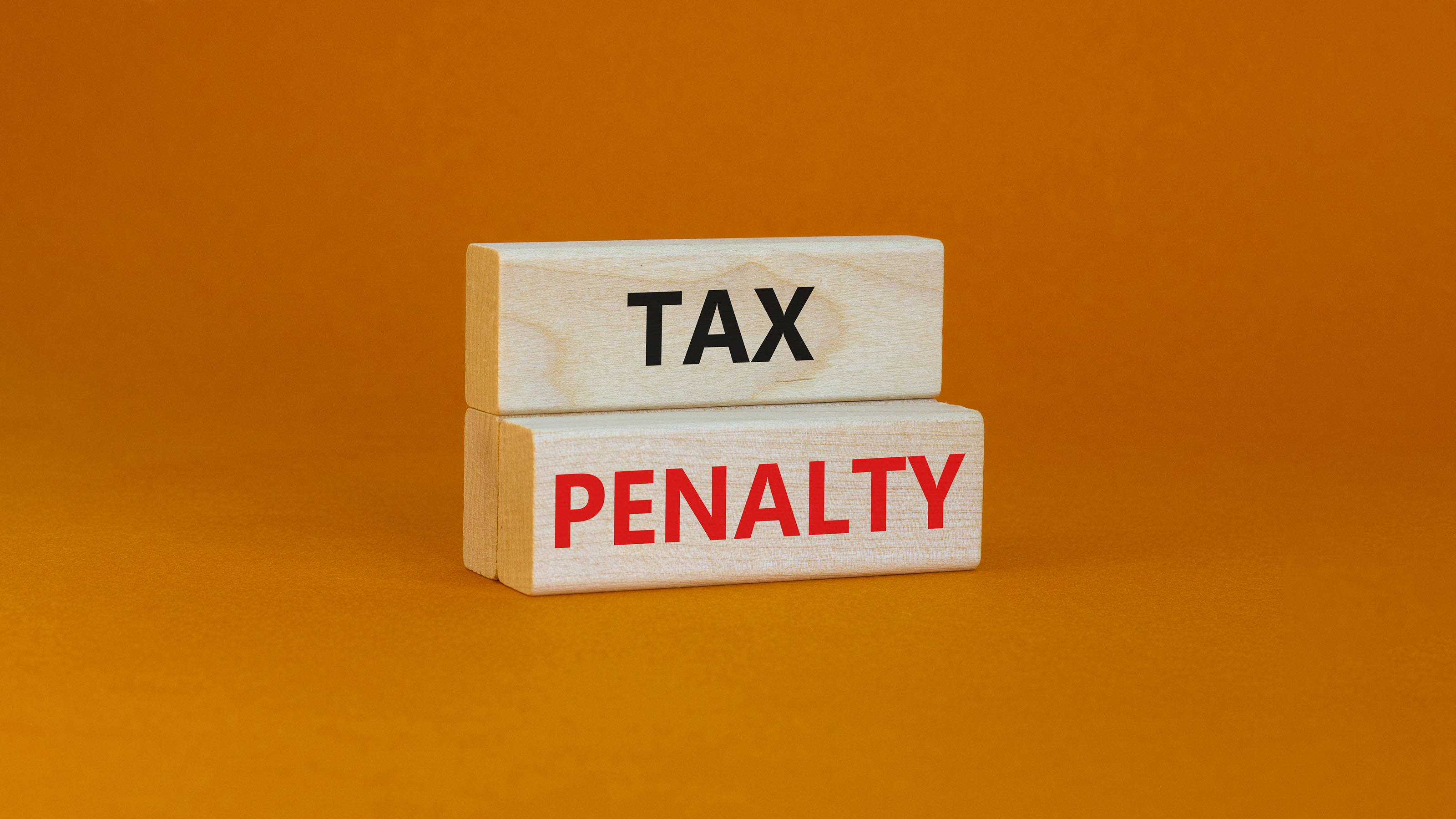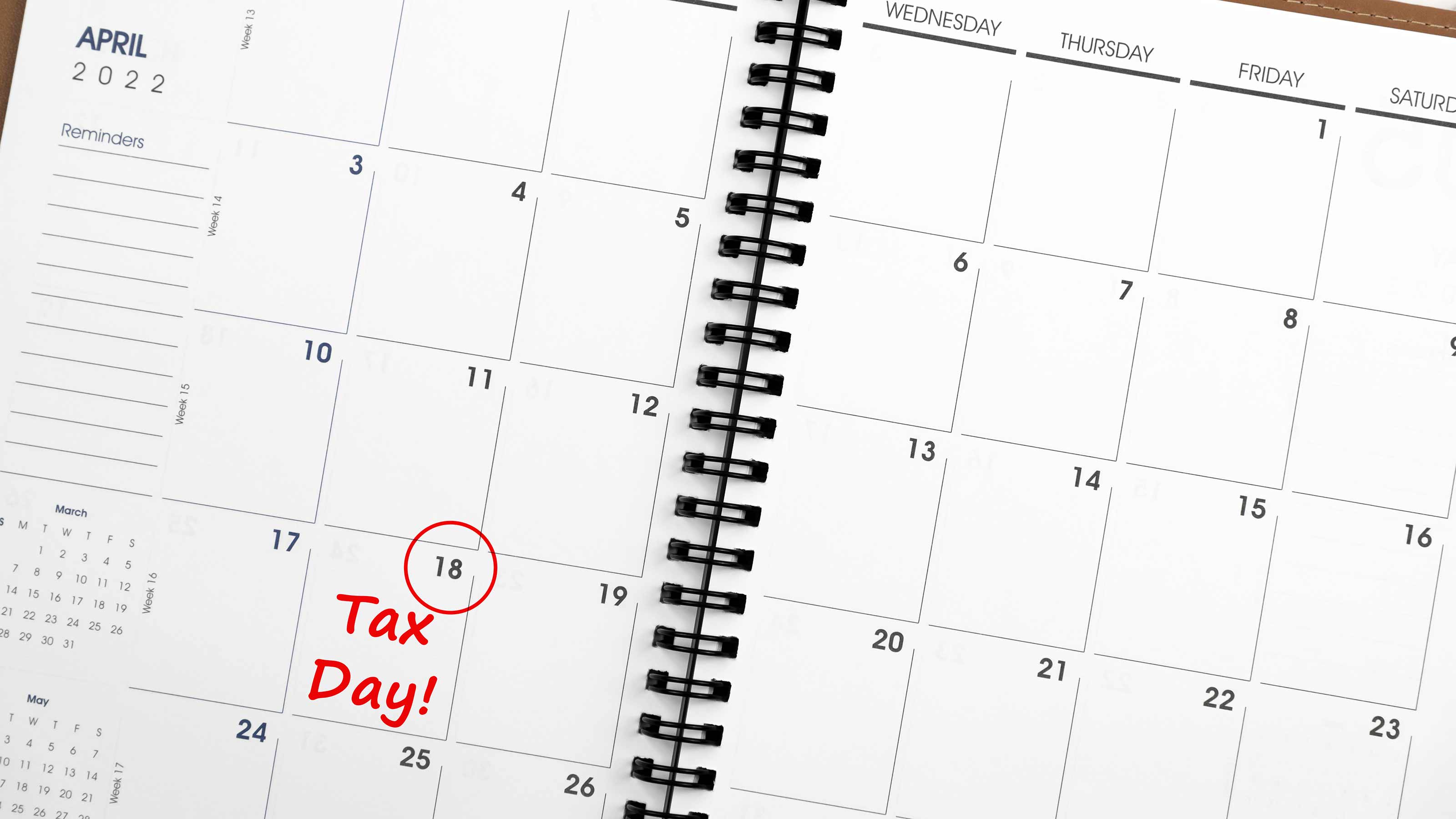Pros and Cons of Filing a Tax Extension
It's easy to extend your tax return deadline to October by requesting a tax extension…but should you?

Kate Schubel

Profit and prosper with the best of Kiplinger's advice on investing, taxes, retirement, personal finance and much more. Delivered daily. Enter your email in the box and click Sign Me Up.
You are now subscribed
Your newsletter sign-up was successful
Want to add more newsletters?
This year, federal income tax returns are due by April 15 for most people. However, if you cannot file your return by the deadline for whatever reason, it's fairly easy to get the due date extended to October 15. All you have to do is request a tax extension by filing a simple IRS form or paying your taxes electronically. Make sure you act before the original tax deadline, though.
Since the process is relatively simple, the question often becomes "Should you get a tax extension?" There are both advantages and disadvantages to requesting an extension and pushing back your tax filing deadline. So, whether you should get an extension comes down to your situation and preferences. What makes sense for you? To help you answer that question, here are a few pros and cons of waiting to file your tax return.
This year, federal income tax returns are due by April 15 for most people. However, if you cannot file your return by the deadline for whatever reason, it's fairly easy to get the due date extended to October 15. All you have to do is request a tax extension by filing a simple IRS form or paying your taxes electronically. Make sure you act before the original tax deadline, though.
Since the process is relatively simple, the question often becomes "Should you get a tax extension?" There are both advantages and disadvantages to requesting an extension and pushing back your tax filing deadline. So, whether you should get an extension comes down to your situation and preferences. What makes sense for you? To help you answer that question, here are a few pros and cons of waiting to file your tax return.
Pro: You get more time to file
If you simply can't file your return by the April 15 deadline, then by all means get a tax extension. You're sick, you can't find your tax records, your computer crashed…whatever the reason, if you can't file you can't file. Don't bang your head against the wall trying to come up with a way to get your return in before the clock runs out. Take the extension!
More time can also mean a more accurate tax return. For example, you (or your tax preparer) will have more time to determine which tax breaks apply to you and which ones don't. Haste makes waste. So, if you are not sure about how to handle something on your tax return, don't rush it — taking the tax extension will buy you more time to figure it out.
Con: You have more time to worry about taxes
Nobody really likes to think about taxes…so why not just get it over with so you can forget about taxes until next year. Pushing your tax return off until October means you'll just have six more months to worry about it. If you don't need more time, don't take it.
Plus, the task of filing your return won't be any easier in October. You'll still have to collect all your tax records, fill out the forms, do the research, etc. Do you really want that hanging over your head any longer?
Pro: You have more time to seek a refund later
Let's say you file your tax return today and pay $100 in tax. In August 2026, you discover a mistake on the return that results in a refund to you. In that case, you're out of luck – it's too late to claim the refund. However, if you request a tax extension and wait to file this year's return until October 15, you'll still have time to request a refund when you discover the error in August 2026.
The tax law allows three years from the time a return is filed or two years from the time the tax is paid, whichever is later, to claim a refund related to the return. The later you file, the more time you'll have to file a refund claim later. While this type of scenario is relatively rare, it does happen. And if it happens to you, you'll thank your luck stars that you requested a tax extension if it means you won't lose out on a refund.
Con: This year's refund will be delayed
If you're expecting a refund this year, think twice about requesting a tax extension. The longer you wait to file your return, the longer you'll wait to get your refund. If you need the money now, then file as soon as possible.
You can also speed up your refund by e-filing your 2024 tax return and opting to have your refund deposited directly into your bank account. The IRS can process electronic returns and refunds much faster than it can handle paper returns and checks.
For more information on factors that can delay your tax refund, read Kiplinger's report: IRS Income Tax Refund Schedule 2025: When Will Your Refund Arrive?
Pro: You might save on tax preparation fees
Tax preparers are busiest right before the tax filing deadline, so expect to pay premium prices if you want your return filed right before the due date. However, things slow down for preparers in the fall. That often translates into lower tax preparation fees, which you can take advantage of if you request a tax extension.
In general terms, prices for tax services can vary widely depending on several factors, including the complexity of your return, where you live, and the preparer's experience. That's why it's important to get a quote before settling on a preparer. You might not get an exact price up front, but at least make sure you understand how the price is determined (e.g., a preparer might have a set fee for each form required, charge you by the hour, or start with a minimum fee and tack on additional costs depending on the complexity of your return).
However, walk away if a preparer bases his or her fee on a percentage of your tax refund — you don't want a preparer claiming questionable tax breaks on your return to inflate the fee.
Con: You still have to pay your taxes now
If you request a tax extension, you won't have to pay your taxes until October…right? WRONG!! The extension is only for filing your tax return — not for paying any tax you owe. You still have to estimate the amount of tax you owe (if any) and pay that amount by April 15. If you don't, the IRS will charge you interest on the unpaid balance and probably tack on additional penalties for paying late.
If you can't pay the tax you owe, pay what you can now and check out the various IRS payment options for what's left. You can set up a payment plan, make an "offer in compromise," or request a temporary collection delay. Some people even take out loans to pay the taxes they owe, since loan costs are sometimes lower than the IRS interest and penalties you'll owe for not paying on time.
For more information, see Ways to Pay the IRs if You Owe Taxes
Pro: You'll avoid late filing fees
The penalty for failing to file your return on time is 5% of any unpaid taxes for each month (or part of a month) that a tax return is late. However, the penalty won't exceed 25% of your unpaid taxes. If your return is over 60 days late, there's also a minimum penalty for late filing — the lesser of $485 (for tax returns required to be filed in 2025) or 100% of the tax owed. So, if you owe taxes this year that you can't pay right now, requesting a tax extension will at least let you avoid (or lessen) late filing fees since the penalty won't start until after October 15.
But you'll still be hit with other penalties if you don't pay any tax due by the April 15 deadline. The failure-to-pay penalty is 0.5% of the unpaid amount for each month, or part of a month, up to a maximum of 25%. The penalty increases to 1% if the tax remains unpaid 10 days after the IRS issues a notice of intent to levy property. If you file your return by its due date and request an installment agreement, the penalty goes down to 0.25% for any month in which an installment agreement is in effect. Interest will be charged on the unpaid amount, too.
Con: You don't get more time to do other things
The tax return filing extension is very limited. It buys you more time to file your return, but it doesn't help with other things. As mentioned earlier, you still have to pay any tax owed by the original due date. It also doesn't delay the payment of estimated taxes, give you more time to contribute to an IRA or health savings account, or extend any of the other April 15 due dates. After April 15, married couples can't file amended separate returns if they previously filed a joint return. A filing extension also doesn't give security traders more time to make a mark-to-market election.
If you do request a tax extension, don't be lulled into thinking that you can sit back and relax for six months. You very well may have other tax obligations to fulfill in the meantime (e.g., making estimated tax payments or reporting tips to your employer). You also still might have to file a state tax return — or at least file a separate extension request with your state (check with the state tax agency where you live for specific rules to follow).
Pro: You might get more time to contribute to retirement savings
For self-employed people, getting a filing extension can also provide more time to contribute to a retirement savings account. Normally, contributions to a Solo 401(k) plan or Simplified Employee Pension (SEP) IRA for the previous calendar year have to be made by the original tax return filing deadline (April 15 this year). However, if you get an extension to file your return, you also get an extension to contribute money to these types of accounts.
There's another perk that everyone gets — whether you're self-employed or an employee — by claiming a filing extension. If you exceed the 2024 IRA contribution limits, you get six more months to withdraw the excess funds and, thereby, avoid a stiff penalty. If you don't claim a tax extension, you'll have to take out the extra contributions by April 15.
Con: You might need a completed tax return for other things
If you're applying for a mortgage or other loan, you'll probably need to submit a tax return. You might need one to apply for certain government benefits, too. If delaying your tax return means you'll have to wait to apply for these or other important things, then maybe it's best just to file your return now.
Profit and prosper with the best of Kiplinger's advice on investing, taxes, retirement, personal finance and much more. Delivered daily. Enter your email in the box and click Sign Me Up.
Rocky Mengle was a Senior Tax Editor for Kiplinger from October 2018 to January 2023 with more than 20 years of experience covering federal and state tax developments. Before coming to Kiplinger, Rocky worked for Wolters Kluwer Tax & Accounting, and Kleinrock Publishing, where he provided breaking news and guidance for CPAs, tax attorneys, and other tax professionals. He has also been quoted as an expert by USA Today, Forbes, U.S. News & World Report, Reuters, Accounting Today, and other media outlets. Rocky holds a law degree from the University of Connecticut and a B.A. in History from Salisbury University.
- Kate SchubelTax Writer
-
 Big Nvidia Numbers Take Down the Nasdaq: Stock Market Today
Big Nvidia Numbers Take Down the Nasdaq: Stock Market TodayMarkets are struggling to make sense of what the AI revolution means across sectors and industries, and up and down the market-cap scale.
-
 How Medicare Advantage Costs Taxpayers — and Retirees
How Medicare Advantage Costs Taxpayers — and RetireesWith private insurers set to receive $1.2 trillion in excess payments by 2036, retirees may soon face a reckoning over costs and coverage.
-
 3 Smart Ways to Spend Your Retirement Tax Refund
3 Smart Ways to Spend Your Retirement Tax RefundRetirement Taxes With the new "senior bonus" hitting bank accounts this tax season, your retirement refund may be higher than usual. Here's how to reinvest those funds for a financially efficient 2026.
-
 States That Tax Social Security Benefits in 2026
States That Tax Social Security Benefits in 2026Retirement Tax Not all retirees who live in states that tax Social Security benefits have to pay state income taxes. Will your benefits be taxed?
-
 Ten States with the Lowest Sales Tax in 2025
Ten States with the Lowest Sales Tax in 2025Sales Tax Living in one of the lowest sales tax states doesn't always mean you'll pay less.
-
 10 Least Tax-Friendly States for Middle-Class Families
10 Least Tax-Friendly States for Middle-Class FamiliesState Tax Here’s what living in one of the least tax-friendly states for middle-class families costs residents.
-
 Low-Tax States for 'Middle-Class' Families in 2026
Low-Tax States for 'Middle-Class' Families in 2026State Tax Here are the best states for families with middle incomes (due to low tax burdens).
-
 15 States That Tax Military Retirement Pay (and Other States That Don't)
15 States That Tax Military Retirement Pay (and Other States That Don't)retirement Taxes on military retirement pay vary from state-to-state. How generous is your state when it comes to helping retired veterans at tax time?
-
 5 Tax Deadlines for October 17
5 Tax Deadlines for October 17tax deadline Many taxpayers know that October 17 is the due date for filing an extended tax return, but there are other tax deadlines on this date.
-
 Penalties for Filing Your Tax Return Late
Penalties for Filing Your Tax Return Latetax deadline Stiff penalties await those who didn't file their return (or pay any tax owed) by the tax filing deadline.
-
 9 Tax Deadlines for April 18
9 Tax Deadlines for April 18tax deadline Between requesting a tax extension, making IRA or HSA contributions, and meeting other tax deadlines, there's more to do on Tax Day than just filing your federal income tax return.

